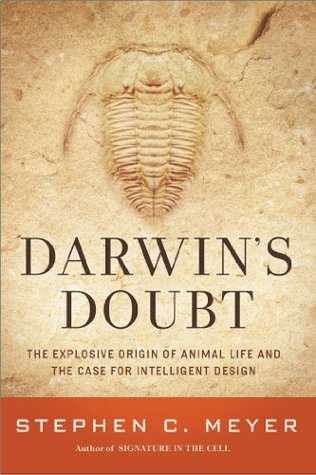17 In other words, the kind of mutations the evolutionary process would need to produce new animal body plans—namely, beneficial regulatory changes expressed early in development—don’t occur. Whereas, the kind that it doesn’t need—viable genetic mutations in DNA generally expressed late in development—do occur. Or put more succinctly, the kind of mutations we need for major evolutionary change we don’t get; the kind we get we don’t need. My Discovery Institute colleague Paul Nelson (see Fig. 13.3), a philosopher of biology who specializes in evolutionary theory and developmental biology,
...more
Welcome back. Just a moment while we sign you in to your Goodreads account.


